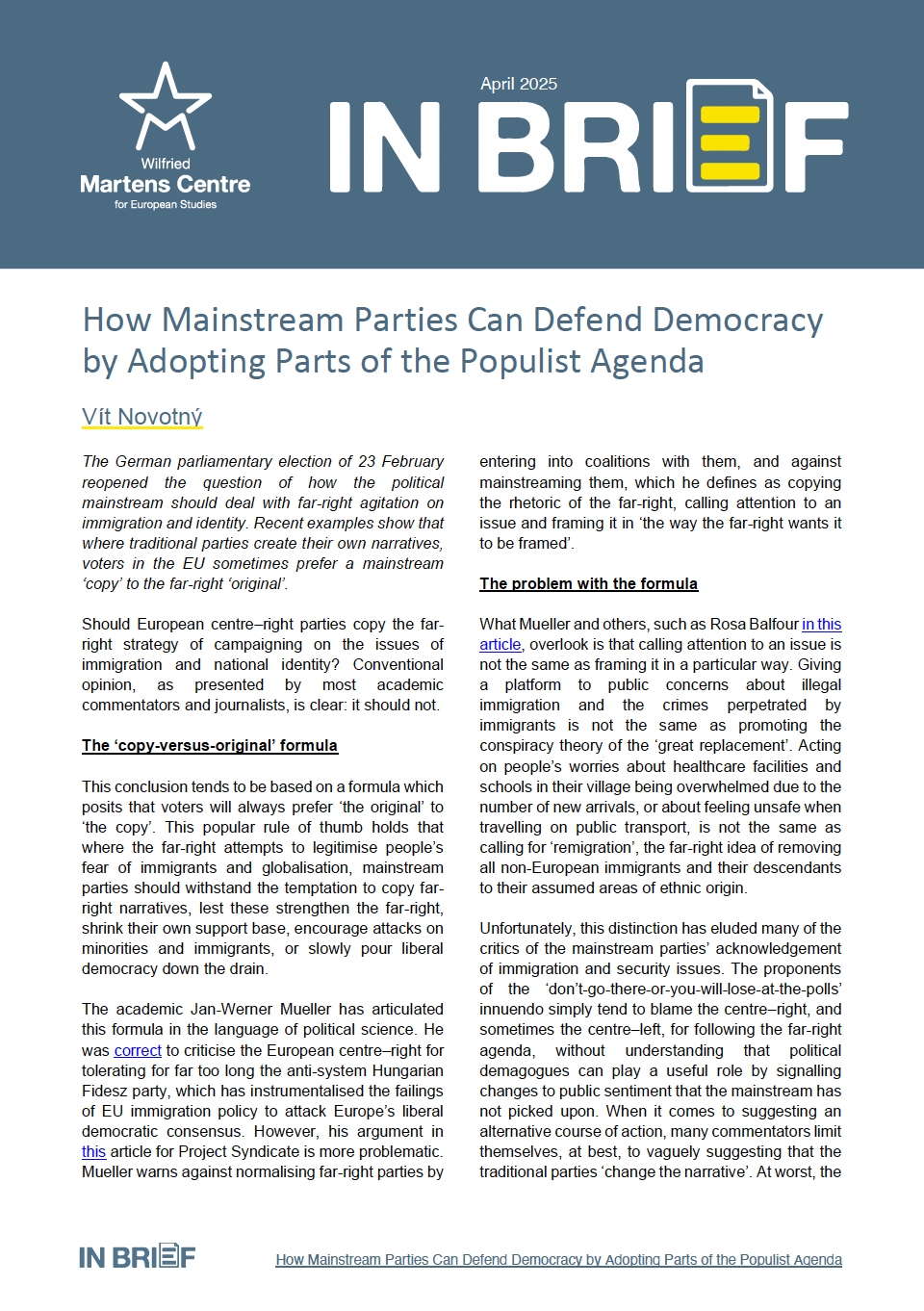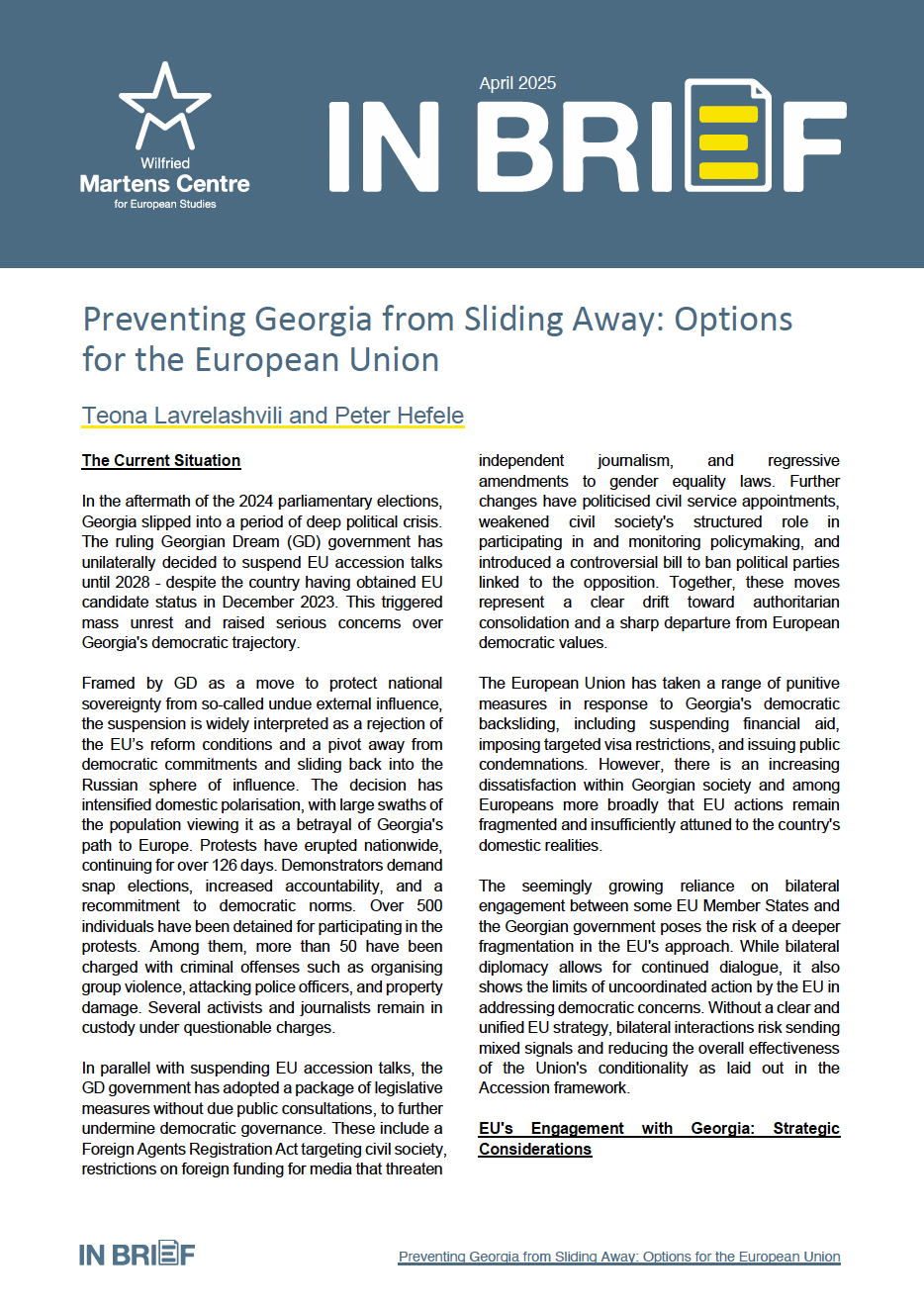The right answer to the wrong question
01 July 2015
In an act of irresponsibility and opportunism, Alexis Tsipras put on the shoulders of the Greek people the burden of the decision about the country’s destiny. The referendum, scheduled for next Sunday, 5 July, rests on shaky grounds for several reasons.
- Is it legal? It is questionable whether it is in conformity with the Greek Constitution as it concerns an issue of fiscal economics. There are also serious procedural deficiencies.
- Is it late? The referendum is untimely as it will be waged five days following the date on which Greece failed to make a debt payment to the IMF. The Tsipras government has planned to receive the people’s verdict when it might be too late.
- Is it fair? The Greek people are asked a very cunning question. They are called to say whether they approve or not a program consisting of a series of austerity measures, following five years of recession. The ‘Yes’ vote is set to signify approval of some version (as negotiations were never completed) of the bailout program. The ‘No’ vote, that carries the endorsement of the government, indicates disapproval for the program and, allegedly, nothing more. Although the crux of the matter is the country’s position in the Eurozone, Tsipras deceitfully tries to conceal or downplay the true consequences of the people’s choice.
The Greek government has admittedly committed a series of mistakes since its election in January. To be fair, the creditors too have underestimated the socio-economic consequences of a long array of austerity measures that have been applied since 2010. There is widespread ‘austerity fatigue’ in the country and despair for the lack of a clear vision for the return to growth.
Yet, the overwhelming majority of the Greek people unequivocally supports the country’s EU membership. The most vicious part of this campaign is that the government uses a deeply divisive nationalistic rhetoric that seeks to alienate and separate the Greek from the European identity. But this is a nonstarter.
- Are the ‘Yes’ voters less Greek? On the contrary. In the referendum, most Greeks are expected to vote ‘Yes’ in order to protect their country’s place in the European family. In an unprecedented demonstration of wisdom and bravery, thousands of low-income pensioners and employees may vote themselves (in the place of their government and contrary to the latter’s suggestion) in favor of a bailout plan containing measures that will affect their lives directly.
- Are the ‘No’ voters less European? Far from the truth. Those who will vote ‘No’, do not collectively form an anti-European constituency. Many pro-European forces may buy into the rhetoric of Tsipras that Greece’s position in the Eurozone is not in jeopardy and cast a vote for ‘No’ out of fear of prolonged austerity.
The outcome of a referendum revolving around a complex and nastily articulated question that additionally takes place within just a week in a climate of fear and uncertainty is hard to predict. Although the country’s European future is at stake, we should not hastily read the referendum result as a vote containing a genuine answer to the question, in or out of the EU. Remember, the government has not dared to articulate such a clear-cut question.
Irrespectively of the referendum outcome, the EU is urged not to turn its back to the Greek people. For every Greek, being European is not a matter of choice. It is self-referential. And the EU should not lose sight of the insidious way Tsipras attempts to extract the ‘No’ vote. In all circumstances, the EU partners should be ready to help the country to overcome a hardship that has lasted for too long. If the ‘Yes’ vote prevails as I am expecting, the referendum will be studied in the future as a paradigmatic case of a demos that defied its government in times of crisis and put its European identity above and beyond any other discussion.
ENJOYING THIS CONTENT?





















